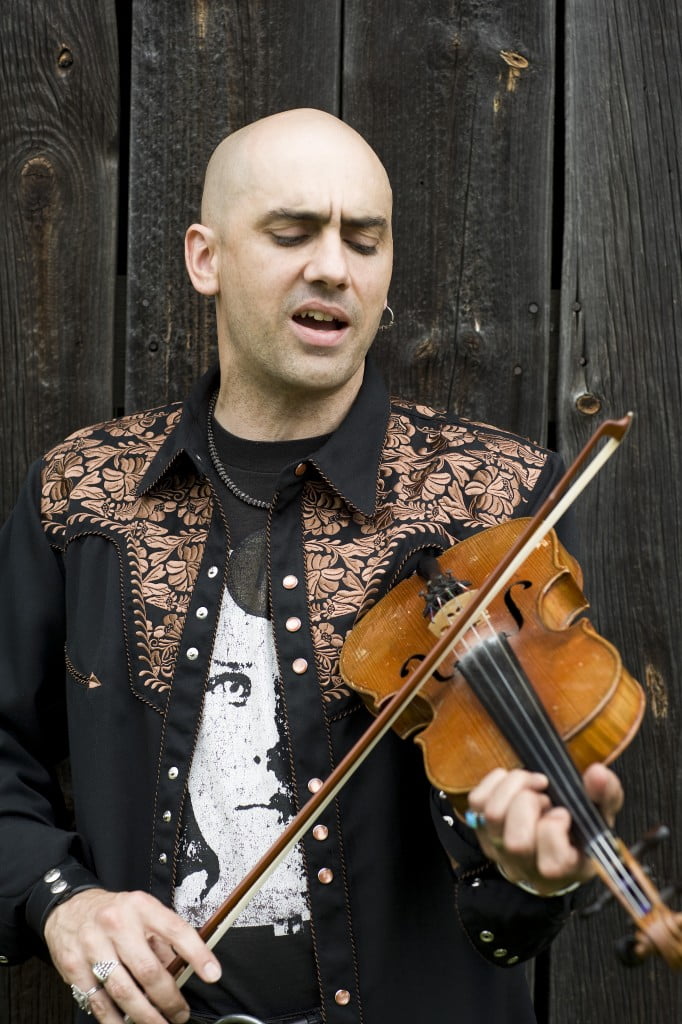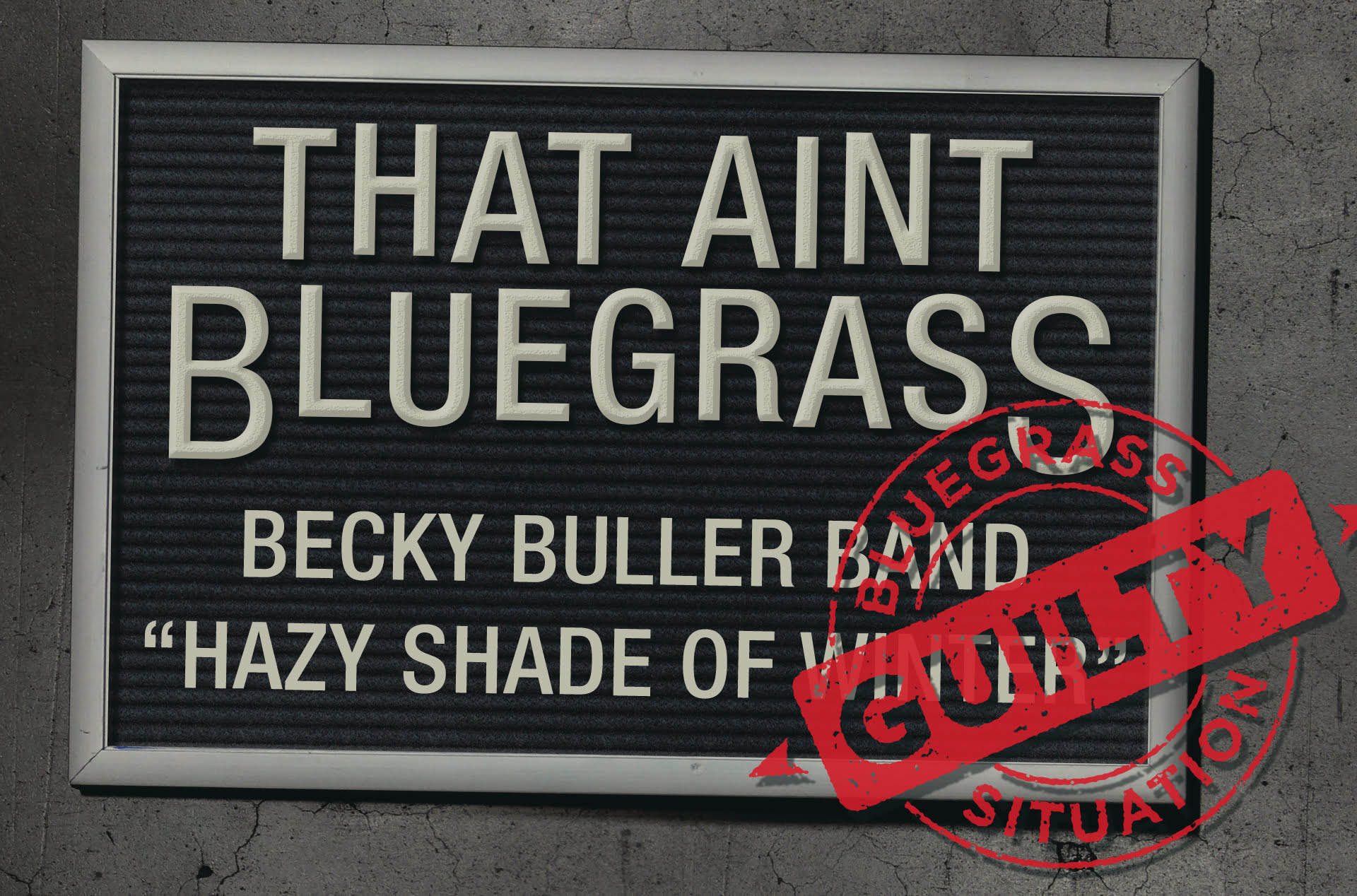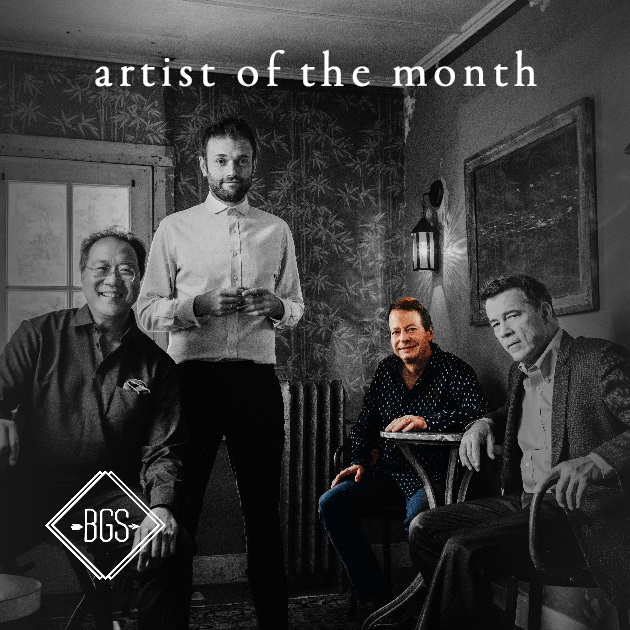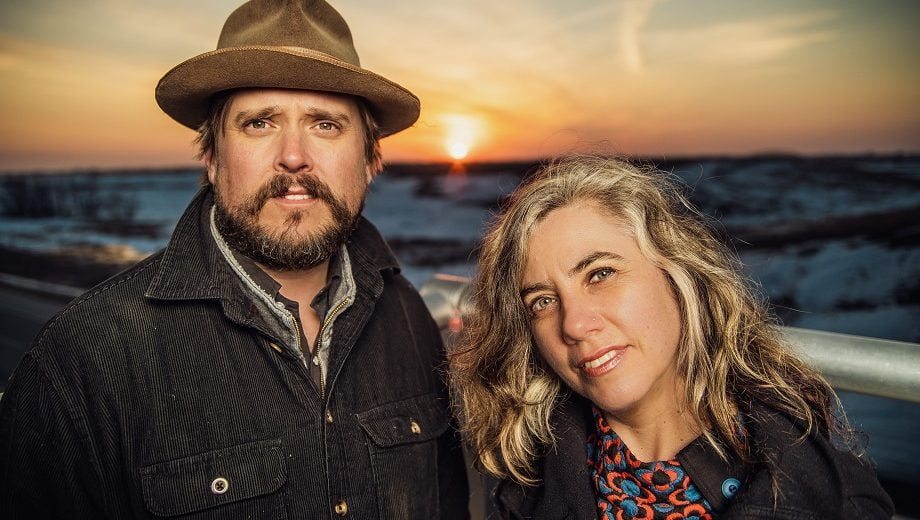TIM ERIKSEN is a man of many passions. Throughout his musical life, he’s moved through a world of musical traditions and ideas that would bewilder any ordinary artist. He spent years in the indie and punk music scenes with his seminal group Cordelia’s Dad, and used this band as a place to bring in his other burgeoning interests in Appalachian old-time music and Sacred Harp, the haunting, communal singing tradition based around the vocal syllables fa-sol-la and clear, eerie open harmonies. Collaborating with T-Bone Burnett for the movie Cold Mountain, Eriksen was able to bring his interest in Sacred Harp singing to the mainstream of American roots music, and since then has been touring and teaching the tradition all over the US and the world. He’s also recently been presenting more of his deep searching into the old traditions of his home in New England, an area that was typically ignored by folklorists and folk revivalists looking to leave their own homes in the region to study in the South. With his new album, Josh Billings Voyage, he’s brought many of his influences and interests together in an imagined New England village, sourcing old songs and writing new songs that sound traditional and other-worldly at the same time. I caught up with him on the phone from his home in New England to talk about his vision behind the album.
Hi Tim, let’s talk about your new album, Josh Billings Voyage. In the liner notes you talk about the town of Pumpkintown. What is Pumpkintown? I’ve been trying to figure out what Pumpkintown is.
Tim Eriksen: It’s an imaginary New England village where a lot of these songs come from.
You also talk about Silas Billings as an inspiration for the album. Who is Silas Billings? I have a suspicion that he’s actually you.
TE: No, Silas is the great nephew of Josh Billings Jr, who is a fictional character from Pumpkin Town.
Okay. Is Silas also a fictional character then?
TE: Yeah, I guess so, even though he played on the album and did some good stuff.
I was enjoying reading in other blogs about Silas’ contributions to the album. [laughing]
TE: Yeah, sometimes it really requires a fictional character to bring things to life.
So, your album is set obviously in New England. Where do you live in New England? How long have you lived there?
TE: I’ve lived in New England most of my life and I live in Amherst, Mass, where I’ve lived longer than anywhere else.
I’m curious because it seems like there’s a real line between folk music in the north and folk music in the south but your album seems to blur that line. Is that your taste or do you think that the line is more arbitrary than we’ve been led to believe?
TE: Well, I think that there are lots of gradations depending on how you view things. My interest, with this album, was partly in finding the influences in small places of other places. So, it’s all music from Pumpkintown but it recognizes the influence of a lot of different sources both local and further abroad, including all the way across the ocean to Southern India.
So, because Pumpkintown is from your creation, you’re also able to bring in your own influences because you yourself have traveled far afield. Is that right?
TE: Yeah, and I’ve found that through locating the music in a fictional village, I was able to tell more truth about New England music than I was in trying to situate it in some actual place. I think Pumpkintown is more of an actual New England village than most of the literal New England villages are that have figured in the literature and in the history.
It seems like you’re updating the idea of a village for a world where people travel everywhere and learn from every corner of the world. Is that right?
TE: For the last couple of hundred years, there’s been a tremendous amount of influence, even in small places, of travel and people passing through and the kind of deep multi-culturalism that exists almost everywhere… when you consider the influence of African-Americans, Native Americans, lots of different kinds of Europeans, not to mention the influence of travel which, again, is hundreds of years old, it begins to be clear, I think, that it’s a much more complex landscape and soundscape than we might initially think. Some of the imaginary and real folk that contributed to this album are people that never left their village until they were 14 or so, but their first journey out might have been to Southern India via Tanzania. If you can imagine leaving your small part of the world for the first time and spending a few years in those places… And if you can imagine actually coming back, then that gives you some idea of what this album is about.
I love your idea of how music and place interact. So, now that there’s folk traditions all over the entire globe, do you still think that place is really influential? Does a bluegrass band in Japan have a sense of place that would change their music?
TE: I think that youtube, and facebook and twitter and all of that, are unable to supercede the actual connection we have with each other in a real place and interaction… I recently got back from having sung with people in 5 or 6 European countries who have been exposed to Sacred Harp singing. I spent some time over there teaching them… They were exposed to [Sacred Harp] through youtube. I think that globally any of the same processes are in place because there is something fundamentally different about being with actual people in an actual place. That’s my take on it.
Could anyone cut an album like you’ve put together here if they really dedicated themselves to exploring their home area, or is there something special about your home area in New England?
TE: I think anyone could do similar work to what I did on Josh Billings Voyage, but I know from experience that it is a whole lot of work and even though I’ve been at this for a whole long time now, it’s the most involved and the biggest things that I’ve done…
What do you get out of the old songs? You sing so many of these old songs and they’re speaking of long lost times. What is it in the songs that keeps inspiring you? Are they speaking to your life or someone else’s life?
TE: That’s a great question… Some of the songs on Josh Billing’s Voyage I wrote, but one thing I keep coming back to is these old American songs which are versions of older British and European folk songs. I think part of the fact is that they’re problematic. It’s not self-evident how we can connect currently without getting into issues of nationalism. It’s just kind of at the heart of a lot of them. There’s a question about the possibility of having a real personal connection and I’m interested in that… As far as the songs go, they’re genuinely earthy in the melodies; there’s a beautiful craft in the way the stories are told, and there’s an interesting relationship between old songs and places.
In New England, everywhere, pretty much, there are woods. We live in places that then [long ago] were pastures and are now forest again. So, growing up, I always wondered what these stone walls were, in the middle of the woods. It seemed strange. Why would somebody build in the woods? Everywhere you go, there are old stone foundations that were used to mark turnpikes and fields and property that’s no longer relevant. But they’re still there and they still have a story to tell… there’s still something about them that, to me, asks questions about where we live and who we are.
And those questions are what’s driving you to sing the songs and understand where the songs come from?
TE: That’s a big part of it. And another part of it is the emotional connection to the stories and the melodies. On a very simple level, they’re just beautiful and well-made. And I think the fact that they are so largely discarded is also interesting. Part of it is the attraction that led me to go dumpster diving when I was a kid. What can I find in the garbage that’s interesting that I can re-use?
[laughing] Is that a spirit, like the dumpster diving spirit, that you think would be found in other folklorists and musicians?
TE: I don’t know. I really can’t speak for anyone else. I feel a pretty big divide between my own interests and inclinations and that of the folk revival movement or even the folklorists going back to the late 19th century. I do feel some resonance with those interests. I think I feel more powerfully a disconnect. To me, these songs have more in common with the hard-core punk that I grew up playing than they do with other kinds of nostalgic music or with the drive to recover a mythical past. I think the weirdness of the present is enough of an impetus for me, the weirdness of the present and its connection with a mythical past is more interesting than trying to create a lineage or trying to attach myself to a western-moving lineage. I don’t know if that makes sense but… The Victorians were very concerned with the idea of European culture and its survival in North America and this general westward movement. For me, I like the songs and I think it’s so weird and strange that they’re kind of here and they’re kind of not [here], like the walls between things that used to be fields and turnpikes. They’re still here but they’re not. I don’t know if that makes sense or not.
It does. It does make a lot of sense. It sounds like you’re saying that there’s a disconnect between the folk revival and the music as well, not just between you and the folk revival but the way the folk revival treats the music.
TE: That’s a really good observation and I think this is probably, and it might be somewhat obnoxious of me to say, but I feel like the folk revival from my vantage point was not about the music but was more about ideology and was more about attaching a sound to a desire for an accessible working class that fit the social leanings of the early folk movement. I think that there are exceptions to that; there were people who were genuinely blown away by the sounds they were hearing but when you listen to most of the music that came out of the folk revival it sounds almost nothing like the music that they were hearing, that they were inspired by. The overall aesthetic was much more that of the nostalgic, sentimental, political left, of the early to mid 20th century.
Do you think that there’s just not enough of a level of creation in the folk revival… that people aren’t writing enough new songs?
TE: That’s a very interesting question as well. I don’t know if new songs are the issue for me. There are plenty of new songs, but most of them suck.
[laughing] True, true.
TE: I try to write new songs. Some of my songs suck. I’m very interested in writing new songs and in responding to older sounds at least in some of my songs. For many of the archetypal musicians that served as inspiration for the folk revival, it was fairly seamless that they play songs that make sense, many of which are old and familiar. I don’t know that there was a whole lot of value placed on individual creativity; I think that’s really a post-Beethoven phenomenon in Western high culture. That’s at least my understanding, that individual creativity wasn’t necessarily a hallmark of achievement. But, at the same time… I think Doc Boggs is maybe a good example of someone who was very influential on the folk revival, who was pretty idiosyncratic. I don’t think that he said, “Oh, I’m going to do this new thing by mixing blues with ballads.” I suspect that he was trying to make music that made sense in his community and to his own aesthetic, philosophical sense of things. That would be my guess anyway.
I wonder… what about the old songs that suck? There’s this idea in the folk revival that anything old and authentic is good. But when you’re going through all these old songs to listen to, do you come across songs where you’re like, “Wow! That song really just sucks?”
TE: Yeah. I think that sometimes there are extremely annoying songs that have, at their heart, something compelling that has enabled them to survive. “Yankee Doodle” is a great example; it’s an amazing tune and I think its suckiness has come more from excessive repetition and attachment to ideology than it has from any problem with the tune itself. It’s just great and the words are incredibly deep historically. They just don’t have the kind of resonance for us that they did for the people who have sung it at various points in the past who actually knew the references. Another category of songs are those that just are not very interesting, either for their tune or for their text. I think those tend not to enter the so-called oral tradition. I think if the song definitely sucks, people just don’t sing it. Why would you? I don’t know why but it seems like commercial music has excelled at finding ways to create connections between people AND sucky songs.
I shouldn’t keep you too much longer but I’d like to know what your new project is, what you’re working on now. You were in Poland, is that right?
TE: I was in Poland teaching at Camp Fasola [Sacred Harp camp] Europe. The first one ever. I did a week-long singing workshop at a festival in southeastern Poland in 2008. The attendees there really took it up. They went crazy and started singing Sacred Harp music every week. In the past 4 years, they established regular singing in a couple of cities and they managed to pull off this week-long Camp Fasola, the first ever Polish national Sacred Harp convention which had people from all over Europe and the United States. It was kind of amazing.
Very cool. Are you doing a recording project along those lines at all?
TE: No. That was just sheer love. These people are great and I love Sacred Harp singing. There’s no commercial intent there at all. I did have a Sacred Harp song in this “Lawless” movie that Nick Cave wrote the screenplay for but I don’t know if it’s still out. I haven’t seen it yet… Aside from Sacred Harp which is really, as I said, more of an avocation, just something I do for love of it musically, we started a trio which is now playing the music of Pumpkintown. So it’s the “Trio de Pumpkintown.” I’m not sure if it’s going to be 3 people all the time, or 12 or 100 or whatever but it’s still the “Trio de Pumpkin Town.” The most active work I’m doing now is with my band, The Feral Woods, which is mostly original music. It’s my attempt at starting a “hacky” band, a jam band… I thought starting a group-based band that really honored people’s urge to groove would be fun. I got a jillion collaborations as always. I’m working on a duo and trio. I’ve already recorded some stuff with Eliza Carthy and Sam Amidon and Riley Baugus. I’m going to record something with T-Bone Burnett. I recently recorded with Kathy Mattea. The title track of her new album is an unaccompanied vocal duet that we did. I think my biggest urge, right at the moment, is to really start a metal band again. I just don’t know when I’m going to have time.
You can learn more about Tim and his work at timeriksenmusic.com



